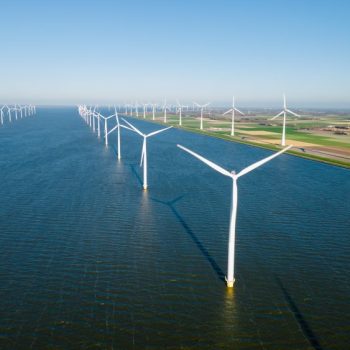
Ten years ago we set out on a journey to become the world’s most sustainable business. To prove that growth doesn’t have to come at the expense of people and planet. To show that business can be a force for good – through actions, not just words. We have achieved many of our goals but still have more to do.
A decade on, we’re sharing what we’ve learnt along the way.
And we’re putting that learning at the heart of a new, even more ambitious strategy.
Looking back on a pioneering decade
In 2010, we launched the Unilever Sustainable Living Plan (USLP).
The USLP was a game changer for us and for others. Back then we didn’t know how we would achieve it and no other company our size had launched such an ambitious plan.
This wasn’t a sustainability plan. It was a plan for a successful, sustainable business.
It set out three big goals, underpinned by nine commitments, and 50 time-bound targets spanning our social, environmental and economic performance across the value chain.
How did we do?
After ten years of the USLP, we can see the impact we’ve made.
We’ve seen the way our work has changed the world around us – empowering women, protecting forests, improving health and supporting sustainable farming.
Here is a film that summarizes the last ten years of the Unilever Sustainable Living Plan, told by the people who made it happen. We’ve also seen the benefits to our business.
Growth driven by brands with purpose, and innovation. Over €1 billion costs avoided. A total shareholder return of over 230%. A supply chain that is increasingly future-proofed against climate change and other risks. A greater trust in Unilever, that has helped us to attract and retain, the best talent. And working with partners, has enabled us to have an even bigger impact, allowing us to drive change beyond our own business.
What we’ve learnt
But although we are proud of our achievements, we still have work to do. We haven’t met every one of our targets. We haven’t achieved all our goals.
At times, we’ve learnt some hard lessons.
Our goal is to source 100% of our agricultural raw materials sustainably. It’s difficult to maintain and deliver our sustainable sourcing targets if we don’t have full visibility of the supply chain for some ingredients. However much time and money we invest, we’re not always going to be able to deliver a more sustainable crop. So we are focusing on the ingredients where we can have the greatest impact. For our smaller volume ingredients, we follow industry standards by applying our Responsible Sourcing Policy.
We have found it extremely difficult to measure the actual impact of many of our programmes to improve livelihoods and enhance opportunities for women. This is something we are still working on.
And we’ve found that because the pace of change is fast and accelerating, we need to be flexible to stay ahead of the curve. We realized, for example, that our work on waste had to be accelerated to address plastic specifically, so we introduced new commitments in 2017, followed by very stretching targets in 2019.
We underestimated how challenging it is to help consumers to change their behavior. Our targets for greenhouse gases and water included an ambition to help consumers change the way they wash clothes or take showers. We have launched some products that require less water and result in less emissions, but we’ve not been able to deliver enough innovations and initiatives to meet our goal. Our work continues here.
We need to advocate for more systems change. For example, we could only reach our target of 100% renewable grid electricity when the market was mature enough. We helped drive change in this industry, and we have to play a role in advocating for greater systems change in other industries too.
Following our Compass
So, as the USLP draws to a close after ten years, we know that we need to be better, bolder and faster in our sustainability ambitions.
Our vision is to be the leader in sustainable business globally. We want to be a business that delivers value to all stakeholders – socially, environmentally and economically.
What does that business look like?
We believe it has to be purpose-led and future-fit – and that it has to drive superior performance. To get there, we will follow our new Compass, – a single sustainable business strategy based on three core beliefs:
We believe brands with purpose grow
We believe companies with purpose last. We believe people with purpose thrive. We will do more of what has worked well and correct what hasn’t. And we’ll set ourselves even more ambitious and progressive targets.
We are on a journey to make sustainable living commonplace for 8 billion people…You could find more about this article to the website unilever.com HERE













